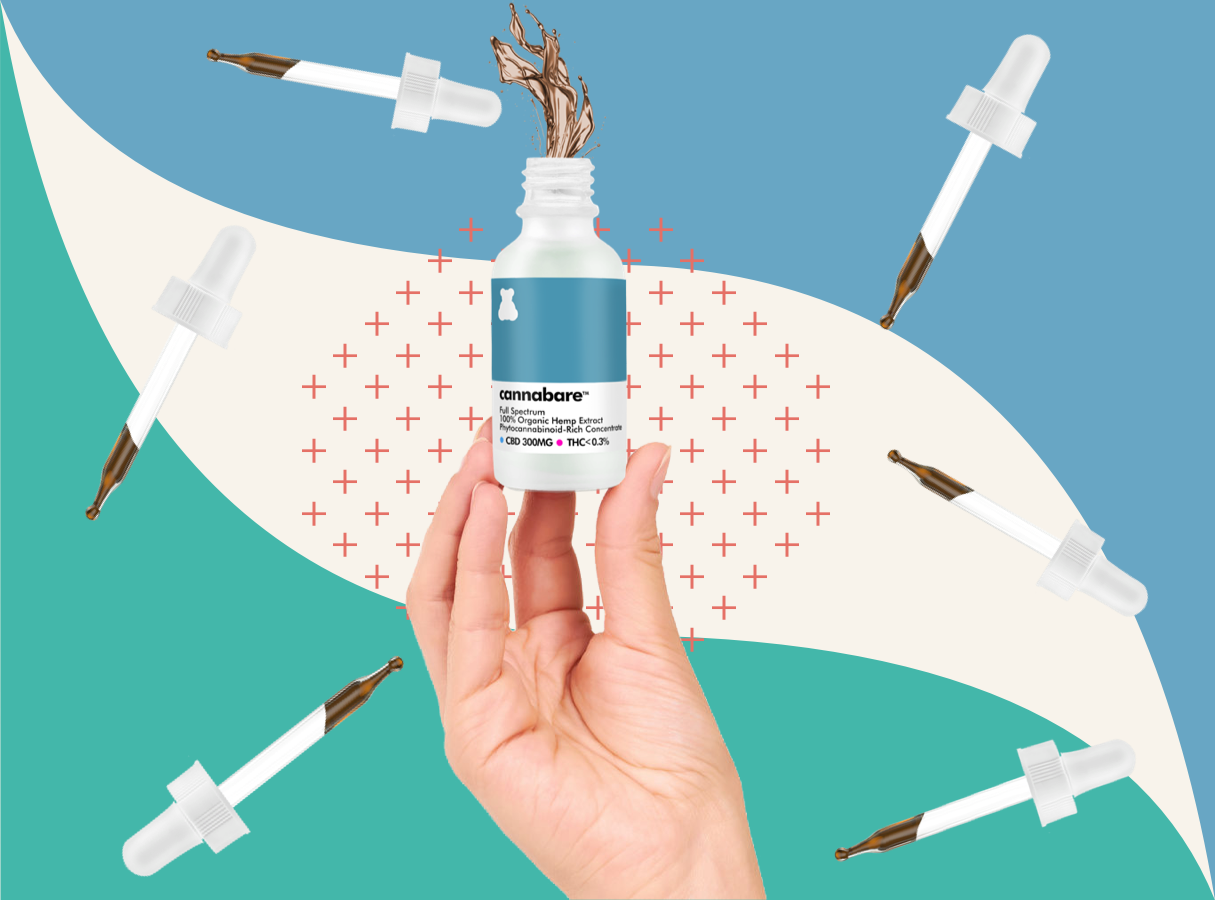What is CBD?
HEMP OIL vs CBD OIL
In recent decades, we have seen how attitudes toward marijuana have changed, from the prohibition mentality to the more lenient decriminalization. Although its consumption remains illegal in many countries in the world, the laws are increasingly tolerant and often only result in a fine. In the United States, many states have legalized their medicinal use, and in some cases even their recreational use.
Too often, cannabis is confused with Hemp and Cannabidiol (CBD). And yet, the second is distinguished from the first by its benefits on health and its use in a medical setting. Of the two best-known active substances of cannabis, CBD is indeed the most interesting from the point of view of patients who use it to soothe pains, anxieties, inflammations, as well as many other symptoms. A kind of cannabis is light, now legalized by many countries because of its therapeutic virtues.
In this article, we will learn more about Hemp and CBD and also will see differences between these oils.
What is CBD Oil?
CBD is a molecule that is part of the cannabinoid family. Like THC, it is an active substance found in the hemp plant (from which cannabis resin is derived). However, it is found in smaller amounts than THC (between 0.6 and 1%, compared to 12 to 25%), mainly because of the production choices made in recent decades.
Hemp oil or THC being more sought after for its "hovering" effects, circulating cannabis seeds contain it at higher levels.
But today, as the medical assets of cannabis are attracting more and more attention, varieties are being produced specifically to contain significant levels of CBD. It is thus possible to find cannabis seeds for medical purposes with more than 6% of CBD, which is huge and quite rare. A concentration of 1% is largely sufficient to cover the needs of patients, CBD proving very effective.
The extraction of cannabidiol from the cannabis plant produces an oily essence containing various cannabinoids in different proportions, varying according to the type of plant, its culture, the method of extraction and storage. CBD oil is containing in the major amount the active ingredient that is called cannabidiol. These cannabidiol oils are found in different concentrations, corresponding to their different uses.
The acronym CBD stands for "cannabidiol" and is a compound contained in the cannabis plant. The main cannabinoids of the cannabis plant are CBD and THC. THC is the psychoactive ingredient that gives cannabis consumers that "hovering sensation". On the contrary, CBD is the compound that provides consumers with medicinal benefits such as pain relief.
Until recently, the majority of cultivated cannabis plants contained large amounts of THC and very little CBD. If a plant contains enough CBD, it can block the effects of THC. This makes CBD a much more suitable cannabinoid for medicinal uses as it does not cause drowsiness or other side effects associated with THC.
What is Hemp Oil?
Hemp oil is extracted from the seeds of cannabis sativa. Marijuana is not the same as hemp or cannabis, as we popularly know them, although they are of the same plant species. They are not the same, they are two different plants because of their composition: just as marijuana has a high content of cannabis (THC, tetrahydrocannabinol) that act in the central nervous system, this other type of Hemp, has a very low content in cannabinoids THC, but high content in CBD is a cannabinol without action on the central nervous system as psychotropic.
How Hemp Oil is produced?
Generally, it is known as Hemp if there is a low THC content in this product, but high in CBD. Once the Cannabis plant with high CBD content has been cultivated, extraction is carried out without the use of solvents or acetones.
The extraction method is one of the most important points of the price and quality of the product. Hemp seed oil, when extracted by cold pressing, is very pure but not very rich in CBD or cannabinoids.
Other methods use petroleum derivatives, solvents such as ketones, these are rich in THC but not in CBD. The next method is with alcohol and olive oil, this method is not the most suitable for concentrated oil.
The best method but also the most expensive is the extraction with CO2, with this we will get the richest and concentrated in cannabinoids.
The cultivation of the robust hemp plant does not require the use of chemicals. Neither pesticides nor herbicides, it is essential to choose products from organic hemp crops. If you need to buy CBD oil, turn only to CBD oil from certified organic crops. The last thing we want is to consume those chemical residues that are present in the plant when grown with pesticides or whatever.
What are the differences between Hemp Oil & CBD Oil?
Hemp is the psychoactive component of marijuana. This implies that its consumption can lead to long or short-term side effects.
It is the cannabinoid that causes the "high" known in marijuana smokers. It acts as a depressant of the nervous system, causing sedative, soothing or tranquilizing effects. This, however, has consequences in the organism.
CBD, on the other hand, activates the responses of our nervous system. It is the cannabinoid responsible for noting the effects of marijuana on our body through our endocannabinoid system.
This system has receptors like CB1 and CB2, in which the CBD acts to restore the balance to our body.
In recent decades, we have seen the general attitude towards cannabis shift from a prohibitive state of mind to a more lax and decriminalized position. Even though cannabis use is still illegal in many countries, laws are increasingly lax and often only lead to a fine. On the other side, in the United States, many states have legalized medical use and some have even legalized recreational use.
With this new position against cannabis, come new products, studies, and possibilities. Hemp products such as oil are becoming more and more popular because of their perceived health benefits. However, hemp oil as such does not contain the medicinal properties that consumers hope for. Confusion occurs when the consumer thinks that hemp oil and CBD oil are the same things.
For example, hemp oil is suitable for use as soap and cooking oil, and not for medicinal purposes. That's why it's important for consumers to understand that hemp oil and CBD oil are not the same things. Some unscrupulous dealers sell hemp oil under the CBD oil label with terrible consequences. These sellers claim that hemp oil is a cheaper alternative and a good source of CBD. Consuming hemp oil as if it were CBD oil can make the condition worse.
CBD and THC have one thing in common:
They come from the hemp plant. Both are therefore cannabinoids, that is to say, active chemicals that act on the body's receptors (nervous system, organs, immune system...). But they are also opposed on many points because, unlike tetrahydrocannabinol (THC), cannabidiol (CBD) does not make "stone" and represents no danger to health.
CBD vs Hemp
Cannabis is a complex product made up of several hundred molecules - the "cannabinoids" - all with their specific properties. The most famous nonetheless remains Hemp. It is the active substance known for its psychotropic effects. It is the THC that helps to change the consumer's state of consciousness, making it "high" or, as they say, making it "hover". In short, when we talk about recreational cannabis use, it is usually a product rich in THC that is referred to.
So do not confuse Hemp and CBD. Cannabidiol is another molecule of cannabis, but it does not have exactly the same purpose. Although it also has a sedative effect, it acts against THC to limit its properties, including calming the nervous system. At a certain rate, CBD can delay the effects of THC and increase them tenfold, but by limiting the risk of "bad trip" (anxiety sometimes generated by the consumption of THC). In other words, CBD has no psychotropic effects. He does not make "stone".
CBD: Therapeutic Virtues
From the foregoing, it can be deduced that the difference between CBD and THC does not lie solely in the effects produced by the two substances. It is mostly about health consequences. While THC is still considered a drug in most countries, because of its psychoactive effects, its tendency to create dependence, and more generally the risks it poses to the body. It's the opposite with regard to the CBD.
Cannabidiol would indeed have major therapeutic virtues. The potential seems to be enormous, to say the least. Because CBD has antalgic and anti-inflammatory properties, would fight against anxiety and depression, and act against certain psychotic disorders etc among other positive effects.
Legal CBD, Illegal THC:
Another difference in weight between CBD and THC: the studies conducted to date tend to show that CBD does not create dependence and is not toxic, unlike THC. For this reason, it is not classified in the category of controlled substances and its sale is authorized in many countries in liquid form, intended for electronic cigarettes.
As such, cannabidiol products with a THC content of less than 0.2% are authorized for sale but no question of highlighting the differences between CBD and THC, nor to boast of the therapeutic benefits of the first.
How does CBD Oil work in the body?
The way in which CBD and all cannabinoids act in the body is by acting on the cannabinoid receptors present throughout the human body. The two mainly affected receptors are called "CB1" and "CB2". The CB1 receptor is found on the surface of brain cells and the CB2 receptor is linked to the immune system.
What are the benefits of CBD Oil?
The medicinal effects are subjective and it may be difficult to measure the individual benefits. CBD oil can provide many potential benefits, from pain relief to relief of anxiety. Other clinical studies suggest that CBD could be used to treat addiction as in the case of alcoholism. Ask your doctor if the potential benefits outweigh the potential risks.
Warning:
The effects of CBD on the body are still being studied and explored. New information is constantly appearing. Currently, there is nothing certain about the effect of CBD oil in any given individual. It is up to each person to do their own research and understand the risks involved in using CBD oil to treat a disease. Always consult your doctor before trying any new form of treatment.
If you are planning to buy, make sure you buy organic and genuine oil otherwise it may harm your health. Check out our all different types of oils which are 100% natural and safe to use.
The quality of CBD Oil:
Before you buy CBD oil, make sure the product does not contain corn syrup, Trans fatty acids, GMOs, artificial additives, thinners, or preservatives. It must be just 100% pure. Should be present, cannabidiol, terpenes, flavonoids, and phenols: they are preserved, and in optimal proportions, only if the method of production is correct and sweet. So only CBD oil keeps all its active ingredients and is of impeccable quality, allowing it to be effective at even lower doses.
Where to buy CBD Oil?
The content of our oils are cannabinoids, terpenes and flavonoids are natural. Our oil is carefully extracted in organic oils of olive, coconut or hemp seeds. The oils thus produced are available in the form of drops, in various concentrations of CBD as well as different sizes of bottle.
Our all products have a natural taste of hemp that can vary from mild to strong. Also, we do not use any kind of artificial, flavonoids, thinners, or pesticides. So you can buy and use our any products without any worries.





